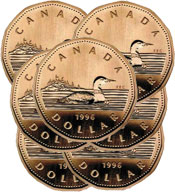This is an archive of news stories and research from the National Union of Public and General Employees. Please see our new site - https://nupge.ca - for the most current information.
'You would think people would want to know more about this ...' - Dale Orr Economic Insight.
 Ottawa (16 April 2010) - A new study shows big differences in health spending on "universal" health care across Canada, suggesting inequalities in the quality and extent of medical care people receive.
Ottawa (16 April 2010) - A new study shows big differences in health spending on "universal" health care across Canada, suggesting inequalities in the quality and extent of medical care people receive.
The analysis of health care spending by Dale Orr Economic Insight of Toronto shows that some provinces spend hundreds of dollars more per capita than others. Newfoundland, for example, spends $1,000 more per person or 30% more than Quebec, which has been consistently near the bottom over the last decade.
Ontario, Canada's most populous and second most prosperous province in terms of per capita income, is also surprisingly near the bottom on health care spending at $3,712 per capita, higher only than Quebec's $3,490.
The highest per capita health care spenders are Newfoundland at $4,490 and Saskatchewan and Alberta at just over $4,400 each. The amounts are based on information from the Canadian Institute for Health Information (CIHI) indicating spending levels for 2009.
The findings may surprise many, says economist Dale Orr, and should cause residents to demand more accountability from their provincial governments.
"Most Canadians think the quality and quantity of health care across Canada is reasonably uniform, but (with) these enormous differences in per capita spending... there's a lot of explaining to do," he said.
"This represents 46% of provincial budgets. You would think people would want to know more about this ..."
Although Quebec spends less than any other province on health care, it has proposed a $25 user fee, the first in the country, in an effort to take pressure off government coffers.
Orr said there is no reliable data available to determine whether the large gaps in spending are also creating gaps in the quality of health care between provinces.
But he says discrepancies in demographics and economies of scale due to higher and more dense populations would not account for such large cost differences.
"Albertans are probably getting the best health care in Canada," he says, noting that the province's younger population likely makes health care delivery cheaper than in other provinces.
The other surprising finding for most Canadians, although not politicians from Ontario who have complained about the system, is that so-called "have-not" provinces appear to have more resources to spend on health care. That's because of Ottawa's social transfers which are designed to give each province an equal ability to pay for such things as health care and education.
Orr notes than in 2008, the last year actual numbers were available, Prince Edward Island received $3,960 per capita in federal transfers, which was more than it spent on health care at the time. Newfoundland received $5,110 per person if energy royalties are included, again more than the province's total health care bill.
By comparison, federal cash transfers to all Canadians averaged $1,717 and Ontario only received $1,297.
NUPGE
The National Union of Public and General Employees (NUPGE) is one of Canada's largest labour organizations with over 340,000 members. Our mission is to improve the lives of working families and to build a stronger Canada by ensuring our common wealth is used for the common good. NUPGE
